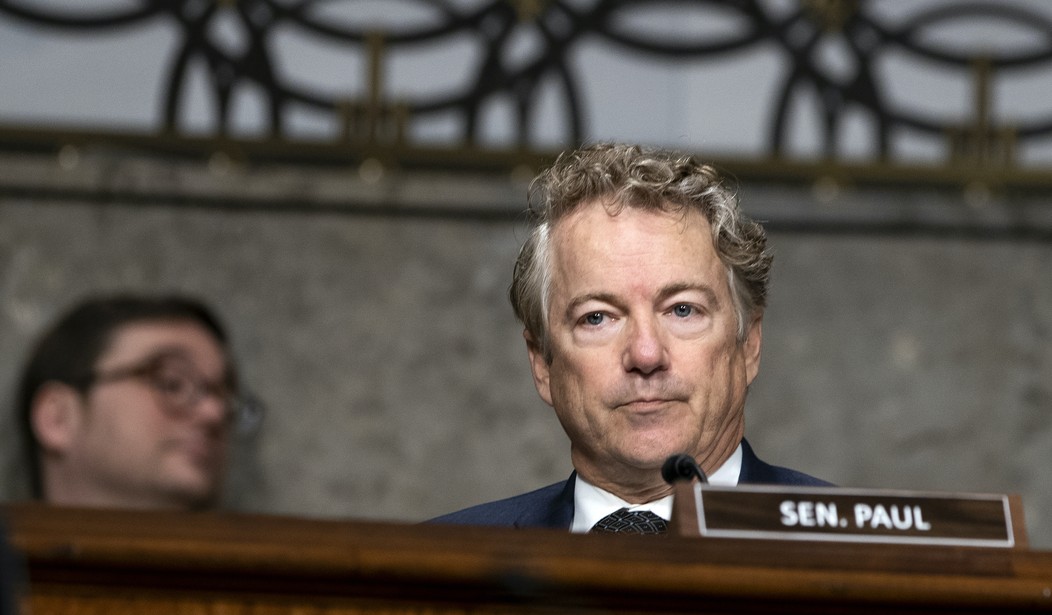As the 2022 calendar dwindles, many across the nation are mentally checking out of work and looking ahead to the holiday season. Unfortunately, members of Congress seem to be counted among that group as well. Congress is poised to pass a 4,155-page, 1.7 trillion dollar government funding bill just days after its introduction. They are spurning basic common sense to get this debacle over with before Christmas. They also have taken to eschew their own budget rules in the process.
According to congressional rules, certain non-exempt spending needs to be offset by equal or greater spending cuts elsewhere. These rules are commonly known as “PAYGO” rules. However, when it comes to this omnibus package – as well as other large-scale government spending bills – members have decided to waive the PAYGO rules, which now turn the federal government’s profligacy into debt that will rest on the shoulders of the American people. PAYGO would have ensured the new spending be offset right away.
Sen. Rand Paul (R-Ky.) was one of the few who decided to properly do his job, noting that the current omnibus proposal does not satisfy the PAYGO rules. However, Senate Democrats – with help from a considerable number of Senate Republicans – waived this point of order. Instead, they steamrolled ahead with the profligate spending, poised to add billions of dollars in new debt to our existing $31 trillion mountain.
Had Sen. Paul’s point of the order been upheld, it could have instantly saved roughly $132 billion. If the omnibus had passed without satisfying statutory PAYGO requirements, either Congress or the White House would have to reconcile the discrepancy before January 3rd. In total, that comes to roughly $742 billion, but because of special rules regarding entitlements, the true number to reconcile comes out to the aforementioned $132 billion – still a significant sum of money, even in Washington.
Recommended
The sustained congressional effort to ramp up deficit spending and avoid following its own rules did not stop there. Sen. Paul offered an amendment, which would change the Congressional Budget Act of 1974. The amendment would raise the threshold to waive PAYGO points of order from 60 votes to 67 votes. Because there seems to be such a bipartisan consensus on runaway expenditures, points of order asking that Congress abide by the rules are rarely upheld. An increased threshold would implement needed accountability. Nevertheless, the amendment failed by a vote of 34-63.
The first observation is to note that had there been a 67-vote threshold, as Sen. Paul is suggesting, his point of order would not have been waived on this omnibus, as there were only 63 votes to tank his effort. Second, it is thoroughly discouraging that 13 Republican senators – elected on ostensible promises of being fiscally responsible and shrinking government – joined with Democratic senators to shut down this effort.
While lawmakers who demand fiscal responsibility seem to be increasingly in the minority in Washington, there are tools at their disposal to put some safeguards on spending habits. If only four of those 13 Republicans had instead backed Sen. Paul, the Senate would be having a conversation about where to find $132 billion in savings for the American people as opposed to how to most efficiently ram $1.7 trillion of spending down their throats.
It only would have taken 38 of the present Senators to accomplish this objective. And, this is not a tall ask. It is simply demanding that the “world’s greatest deliberative body” abide by the rules that govern it, rather than dismissing them when they become inconvenient. Sadly, so much of Senate procedure is governed by precedent, with no hard-and-fast oversight on how they spend and whether or not rules are followed. This is as clear an example of this as there is.
While it may not seem possible to reignite this fight in the remainder of 2022, this should continue to be a priority for fiscal hawks in the Senate in the next Congress. This is surely not a cure-all for the profligate spending habits that ail so many American lawmakers, but it is a clear way that the damage to America’s fiscal health can be mitigated, merely by ensuring the rules on spending are enforced. Again, this effort does not require a vast majority, but rather a strong-willed minority of senators willing to stand up and be counted.
Next year, the story will likely be the same. Congress is well-accomplished at putting off funding obligations until late December and then jamming through a massive package under the looming threat of a government shutdown. When it comes around again, senators should not forget these seemingly innocuous procedural votes on PAYGO. The price tag of ignoring these rules this year was $132 billion. So-called proponents of fiscal responsibility should not accept a similar price tag ever again.
Dan Savickas is the Director of Policy at the Taxpayers Protection Alliance.

























Join the conversation as a VIP Member